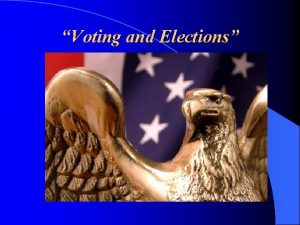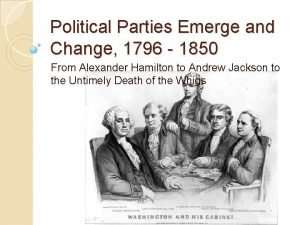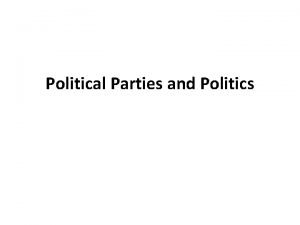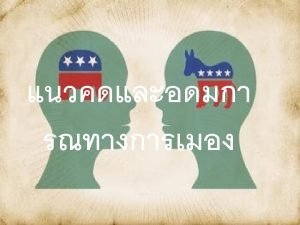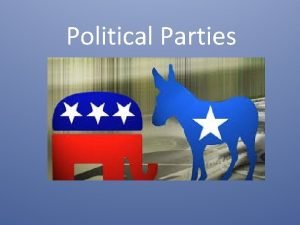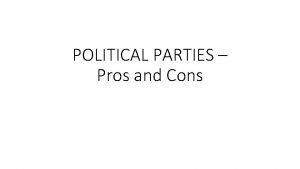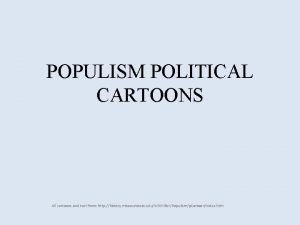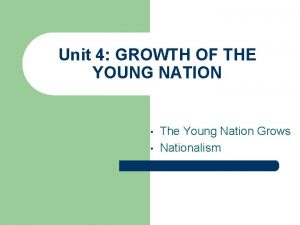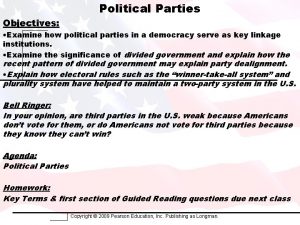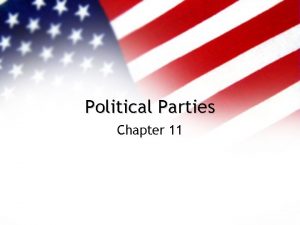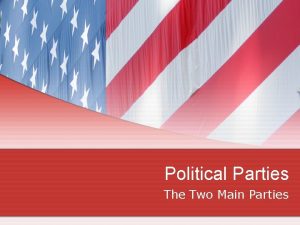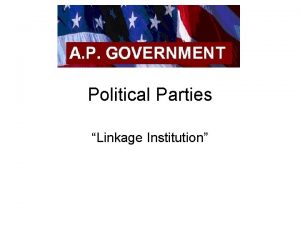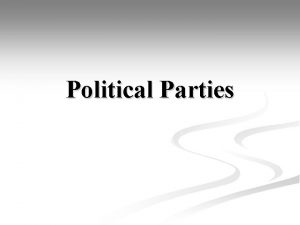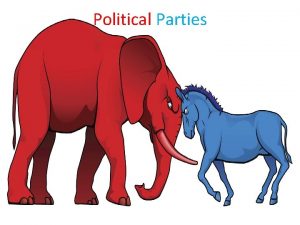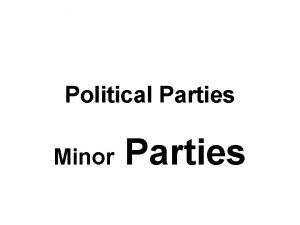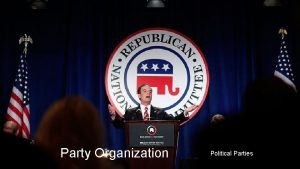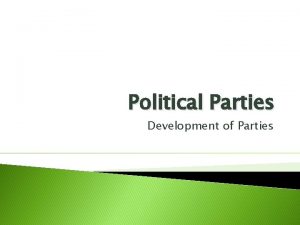Political Parties History of the Two Party Political











- Slides: 11

Political Parties History of the Two Party Political System

What is a political party? A group of people with broad common interests who organize to win elections, control government, and thereby influence ______________. Political parties help to _____________________ public opinion into organized political action.

ideologies Ideology: Political Party affiliation is largely based on what you personally value. Political parties are an expression of accumulated political values

Who can be in a political party? Any American citizen may join a political party regardless of age, but most members are eighteen or older.

Functions Recruit candidates Operating the government Dispensing patronage: favors given to reward party loyalty or their members. (examples: jobs, contracts, appointments to government positions) Reduction of conflict

First Political Parties First organized political parties emerge in Washington’s cabinet (amongst his advisors) Federalists vs. Democratic Republicans Then the Republicans emerge to stop the spread of slavery. . .

Two major political parties emerge The Republicans emerged as a major national party in 1860 with the election of Abraham Lincoln.

Why two political parties? Historical causes Structural causes Partially due to the Electoral College Presidential democracy vs. parliamentary democracy

Third parties Third Party: any party other than one of the two major parties. Obstacles: required to obtain voter signatures to get on the ballot Single-member districts: Americans are convinced third parties won’t win because of $$$$


 Win the white house brainpop
Win the white house brainpop What was one way progressives differed from populists
What was one way progressives differed from populists Political parties
Political parties The supreme court change
The supreme court change A political party is an association of
A political party is an association of Soup and ideology
Soup and ideology Political parties
Political parties Political parties pros and cons
Political parties pros and cons Third party vs fourth party
Third party vs fourth party Populism political cartoon
Populism political cartoon Election of 1824 map
Election of 1824 map Objectives of political party
Objectives of political party
